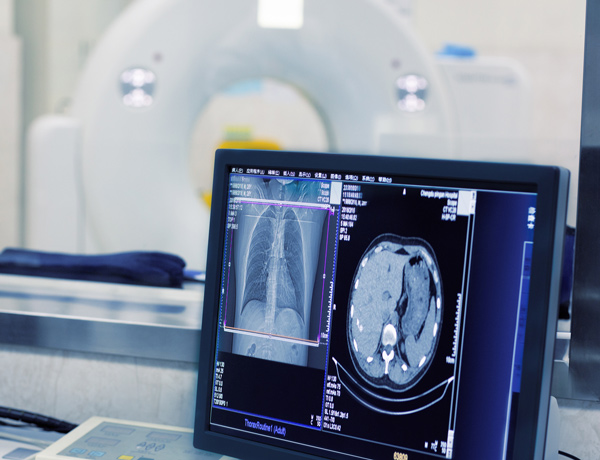COVID-19 Delays Can Lead to Cancer Progression
Treatment & DoctorsWritten by Sean Marchese, MS, RN | Edited By Amy Edel

Patients often have difficulty receiving an accurate mesothelioma diagnosis because of the complexity of their disease.
A long latency period and the potential for misdiagnosis mean patients often wait years before undergoing appropriate treatment.
The COVID-19 pandemic has exacerbated these issues because hospitals have had to delay cancer screening visits and elective surgeries. As patients wait for their next appointment or treatment, cancer can worsen and spread.
Being Proactive with Mesothelioma Therapy
Pleural mesothelioma survivor Emily Ward suggests patients should minimize treatment interruptions. “I have had treatments delayed. And it seems a rule of thumb is to make that treatment up ASAP and adjust the schedule from that point,” she said.
“The most important thing is to be proactive in getting makeup treatments rescheduled,” says Emily.
Thoracic surgeon Dr. Raja Flores at Mount Sinai Cancer Center warns that mesothelioma radiation therapy is especially vulnerable to missed doses. “When you break up radiation…that minimizes its effectiveness,” he said. “You want that to be a continuous treatment without interruptions.”
A November 2020 Canadian study analyzed the long-term results of treatment delays on cancer prognosis. The study concluded, “A four-week delay in treatment is associated with an increase in mortality across all common forms of cancer treatment, with longer delays being increasingly detrimental.”
Some patients have avoided cancer screenings or primary care appointments out of fear of exposure to infected patients or staff. Many are still waiting for the COVID-19 vaccine, which is still not widely available to every cancer patient.
While the pandemic remains a concern, delaying a mesothelioma diagnosis or scheduled therapy could mean a difference in the availability of life-saving treatments.
Late Diagnosis Leads to Poor Prognosis
Healthy people who have recently begun to experience respiratory symptoms may be quick to assume they have a COVID-19 infection. However, many signs of infection, such as cough, fever and fatigue, are also indicators of thoracic cancers such as mesothelioma and lung cancer.
Mesothelioma can take many decades to develop after asbestos exposure. By the time symptoms appear, cancer progression is likely advanced, and fewer treatment options may be available. Mesothelioma surgery is often the best treatment option, but it’s typically only available in early stages of the disease.
Delays in screening, late detection and pandemic fears are likely to lead to a higher number of cases with a poor mesothelioma prognosis.
The medical journal Science published a report detailing a steep drop in cancer diagnoses since the start of the pandemic. However, the actual incidence of cancer has not decreased. Patients have had fewer routine cancer screenings because of the fear of contracting coronavirus in health care settings.
One recent study suggests pandemic-delayed cancer diagnoses could lead to more than 33,000 additional cancer deaths in the United States. The study reported that in 2020 breast cancer screenings decreased 85% and lung cancer screening reduced 56% compared to the previous year.
In an editorial in the journal Science, Dr. Norman Sharpless, director of the National Cancer Institute, said, “In the past three decades, we have seen steady and strong progress against death and suffering from cancer, thanks to improvements in prevention, screening, diagnosis and treatment.”
Sharpless continued, “I worry that the … pandemic has put those decades of steady progress at risk and may precipitate reversals of these trends.”
COVID-19 Increases Risk of Misdiagnosis
Misdiagnoses are responsible for more than 40,000 deaths each year. In a report on misdiagnoses in the Journal of Hospital Medicine, the authors outline multiple ways the COVID-19 pandemic contributes to diagnostic errors.
“All of these misdiagnoses can lead to patient harm from delays in the correct treatment,” said Dr. Hardeep Singh, author and professor of medicine at Baylor College of Medicine.
Primary examples of misdiagnosis types include:
- Classic: Lack of accessible or accurate testing that leads to a delayed COVID-19 diagnosis.
- Anomalous: COVID-19 patients who lack respiratory symptoms and receive a misdiagnosis with a non-COVID illness.
- Anchor: Assuming patients have COVID-19 based on respiratory symptoms, which may worsen conditions such as pneumonia caused by lung cancer.
- Collateral: Pandemic fears keep sick patients from treating acute symptoms or cause delays in elective procedures such as biopsies.
- Unintended: The inherent risk of misdiagnosis during telehealth or telemedicine visits when virtual exams could obscure specific details.
Experts project that redesigning the healthcare system during the pandemic could help mitigate the loss of life misdiagnosis causes. With better testing supplies and methods, as well as improved public education, sick patients can receive appropriate care on time.
An anchor misdiagnosis is especially problematic for potential malignant mesothelioma cancer patients. Patients with cough and fever symptoms could test negative for COVID-19 and never receive follow-up care for cancer screening.
COVID-19 deaths have now exceeded 500,000 in the United States, and medical providers still struggle with maintaining adequate staff and supplies. These factors make it more difficult for providers to diagnose a patient accurately when many respiratory infection symptoms and mesothelioma symptoms overlap.
“There is no magic pill that is going to solve this,” Singh said. “But we can definitely improve the work system we practice in and seek help when needed.”






